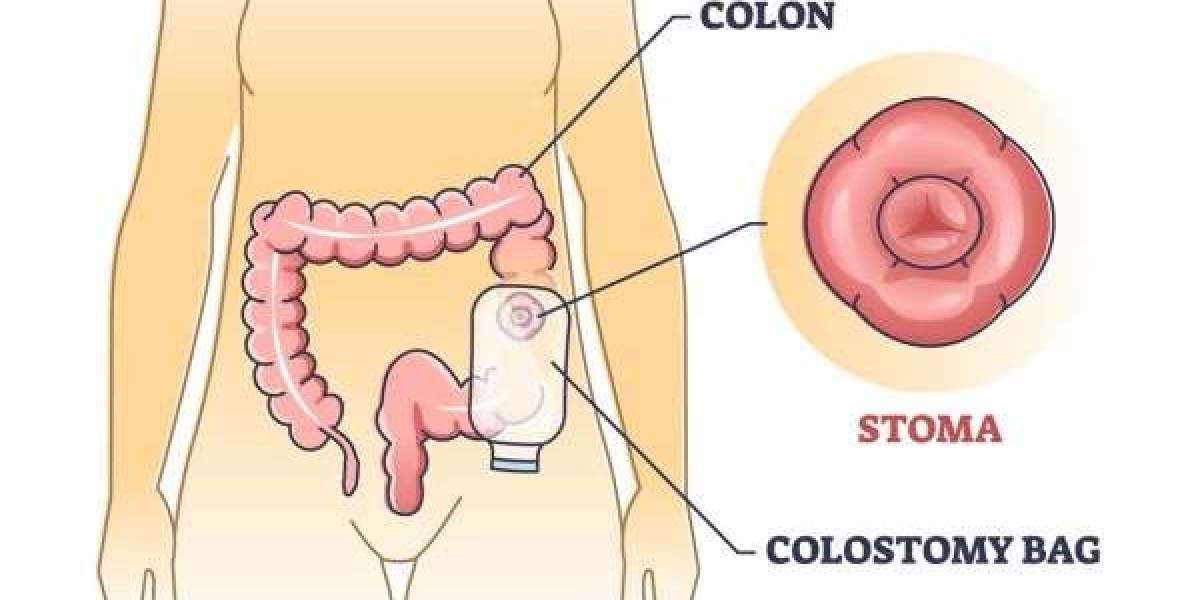Colorectal cancer, also known as bowel cancer, colon cancer, or rectal cancer depending on where it starts, is one of the most common cancers affecting both men and women globally. In Singapore, it remains one of the leading types of cancer diagnosed annually, especially among individuals over 50. However, with the country's world-class healthcare infrastructure, highly trained medical professionals, and access to the latest technologies, Singapore has become a regional hub for colorectal cancer diagnosis and treatment.
Understanding Colorectal Cancer
Colorectal cancer develops in the colon or rectum, which are parts of the large intestine. It usually starts Colorectal cancer treatment in Singapore as small, benign polyps that may become cancerous over time. Early detection is crucial, as survival rates are significantly higher when the disease is caught in its initial stages.
Risk Factors for colorectal cancer include:
- Age over 50
- Family history of colorectal cancer or polyps
- Diet high in red or processed meats
- Sedentary lifestyle
- Smoking and heavy alcohol use
- Inflammatory bowel diseases like Crohn’s disease or ulcerative colitis
Why Choose Singapore for Colorectal Cancer Treatment?
Singapore's healthcare system consistently ranks among the best in the world, and its cancer treatment facilities are no exception. The country offers:
- Multidisciplinary care involving oncologists, gastroenterologists, surgeons, radiologists, and pathologists.
- State-of-the-art diagnostic tools such as colonoscopy, CT colonography, PET scans, MRI, and advanced pathology services.
- Minimally invasive surgeries and cutting-edge robotic-assisted techniques.
- Access to targeted therapies, immunotherapy, and clinical trials.
- Personalized treatment plans based on the genetic profile of the patient and the tumor.
Diagnosis of Colorectal Cancer in Singapore
Diagnosis typically begins with a colonoscopy, often used to detect and biopsy suspicious growths in the colon. Other tests that may be performed include:
- Fecal Occult Blood Test (FOBT) or Fecal Immunochemical Test (FIT)
- Imaging scans (CT, MRI, or PET) to determine the cancer's stage
- Blood tests, including those for tumor markers like CEA (carcinoembryonic antigen)
- Biopsy and histopathology, to confirm malignancy and its type
Early screening, especially for individuals over 50 or with a family history, is encouraged and widely available in Singapore.
Treatment Options for Colorectal Cancer in Singapore
Treatment depends on several factors, including the cancer’s stage, location, overall patient health, and preferences. Singapore's hospitals offer a full spectrum of treatments, typically through a multidisciplinary team (MDT) approach.
1. Surgery
Surgery is the most common treatment for localized colorectal cancer. Options include:
- Laparoscopic surgery: Minimally invasive with quicker recovery times
- Robotic-assisted surgery: Increased precision and lower complication rates
- Open colectomy or proctectomy: For more complex cases or when minimally invasive methods are unsuitable
- Transanal endoscopic microsurgery (TEMS): For rectal polyps or early-stage rectal cancers
2. Chemotherapy
Chemotherapy may be administered before surgery (neoadjuvant) to shrink tumors or after surgery (adjuvant) to eliminate residual cancer cells. Common drugs used include:
- 5-fluorouracil (5-FU)
- Capecitabine
- Oxaliplatin
- Irinotecan
3. Radiation Therapy
Typically used for rectal cancer, especially in locally advanced cases, to shrink tumors before surgery. It may also be used for pain relief in advanced stages.
4. Targeted Therapy
For advanced or metastatic colorectal cancer, targeted drugs such as:
- Bevacizumab (Avastin) – blocks blood supply to tumors
- Cetuximab or Panitumumab – block growth signals in cancer cells
These therapies are guided by genetic testing of the tumor.
5. Immunotherapy
Patients with specific genetic mutations (e.g., MSI-H or dMMR tumors) may benefit from immune checkpoint inhibitors like:
- Pembrolizumab (Keytruda)
- Nivolumab (Opdivo)
6. Palliative Care
In advanced cases where a cure is not possible, palliative care focuses on symptom relief, improving quality of life, and emotional support.
Leading Hospitals for Colorectal Cancer in Singapore
Some of the top institutions offering comprehensive colorectal cancer care include:
- National Cancer Centre Singapore (NCCS)
- Singapore General Hospital (SGH)
- Mount Elizabeth Hospitals (Orchard and Novena)
- Gleneagles Hospital
- Raffles Hospital
- Tan Tock Seng Hospital (TTSH)
These facilities are equipped with modern operating theatres, dedicated cancer wards, and holistic care programs.
Cost of Colorectal Cancer Treatment in Singapore
The cost varies based on the stage of cancer, complexity of treatment, and whether the patient is a resident or foreigner. On average:
- Surgery: SGD 15,000 – SGD 30,000+
- Chemotherapy: SGD 2,000 – SGD 5,000 per cycle
- Targeted therapy or immunotherapy: SGD 5,000 – SGD 10,000+ per month
- Hospital stay: SGD 500 – SGD 1,500+ per night (depending on ward class)
MediShield Life, Integrated Shield Plans, and Medisave can help cover costs for Singapore citizens and permanent residents.
Post-Treatment and Recovery
After treatment, patients are enrolled in follow-up programs to monitor recurrence and manage long-term side effects. This includes:
- Regular colonoscopies
- Blood tests and imaging
- Diet and lifestyle counseling
- Psychosocial support and rehabilitation
Medical Tourism for Colorectal Cancer in Singapore
Singapore is a preferred destination for international patients due to its:
- English-speaking healthcare providers
- Transparent healthcare system
- International accreditations (e.g., JCI-accredited hospitals)
- Efficient coordination through hospital international patient centers
Medical travel concierge services assist patients with visa processing, appointments, accommodations, and interpretation services.
Conclusion
Colorectal cancer treatment in Singapore offers one of the best standards of care in Asia, combining advanced medical technology, skilled professionals, and patient-centered support systems. Whether you're a local resident or a medical tourist seeking reliable and high-quality care, Singapore provides a trusted destination for fighting colorectal cancer.
Early detection saves lives. If you or a loved one are at risk or have been diagnosed, seeking prompt medical advice from a specialist in Singapore can make all the difference in outcome and recovery.







